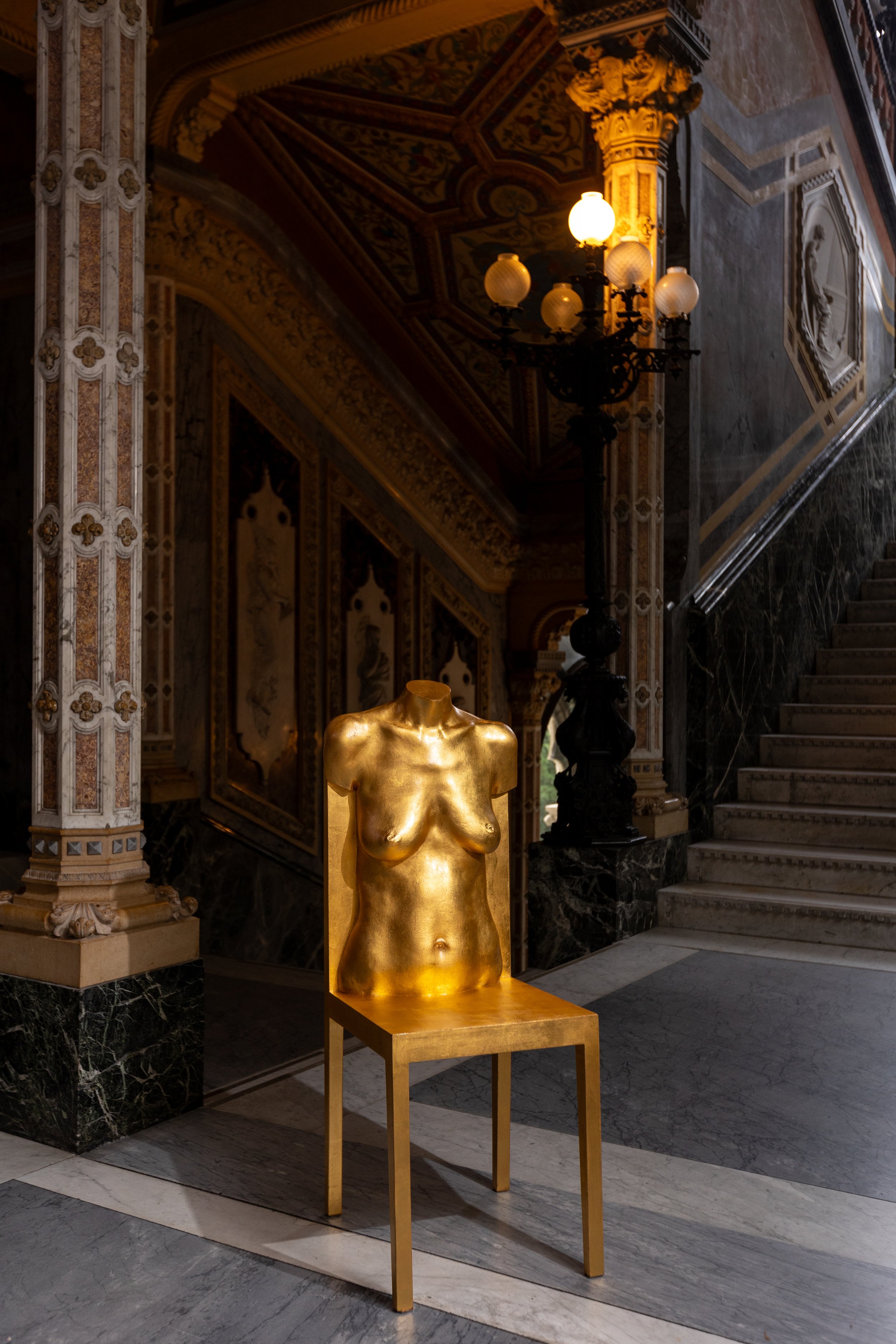
A chair for the mother (Your breasts may or may not return to their pre-breastfeeding size or shape)
Isabella Lobkowicz
2024
Wood, plaster, 24 kt.s gold leaf
A chair for the mother was presented at Breasts exhibition at Palazzo Franchetti, Venice during Biennale 2024
Few things remind us of our being mammals as much as breastfeeding. Less discussed about than sex and nutrition, breastfeeding remains something of a social taboo. Some women feel it’s the most natural thing they ever experienced, a sort of superpower, whilst others find it painful and binding. Some women would never stop breastfeeding, others decide not to, and for others it was never an option.
What happens to the body of the woman during and after breastfeeding remains a process full of unknowns, that women are supposed to just take as it comes.
You will change, just nobody knows how, how much, for how long. Any attempt to research evidence of how breasts do change is often met with a blunt “may or may not return to their pre-breastfeeding shape”. The sentiment is: you must breastfeed, yet you should stay attractive and feel comfortable in your body.
When Breasts asked me to envision a chair for the exhibition, I was pregnant with my third child. I felt sure of my experienced body as I kind of knew what I was up against. Yet, for the first time in my experience, my little baby was not growing properly, was not eating properly. That put me in a spiral of weighing
nightmares, celebrating every increase and mourning over every stationary weight. Doctors told me to keep going, as breast milk is the biggest present I could offer to my child. But they also asked “Are you working? On both sides? Did you breastfeed your other kids? Maybe you’re stressed or not drinking enough water”. The body of the woman becomes a machine, quickly deemed as non functional if the results are not meeting expectations. Oh, and just remember to stay sexy too.
A chair for the mother portraits a female post-breastfeeding body as the backrest of a banal chair.
This work is a celebration of all women with all of our wonderful imperfections. It is those imperfections - that we still feel can’t really be talked about, and we’d like to fix - that make us the most powerful and precious thing.
Your breasts will change, and so will you. It’s the sign you have been doing something entirely natural, yet incredible. And if it doesn’t work for you or your child, it’s not the end of the world.
Love, Isabella




